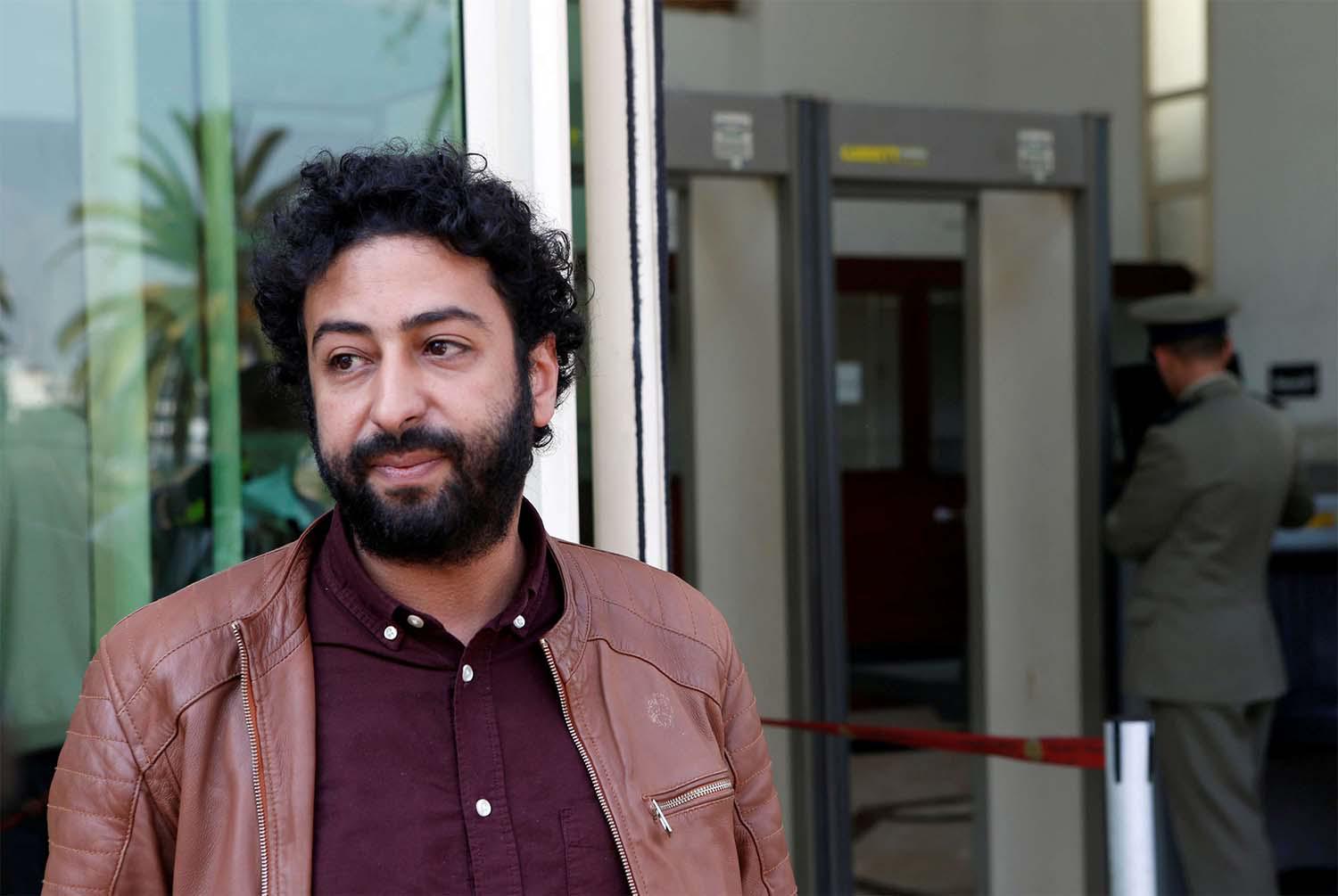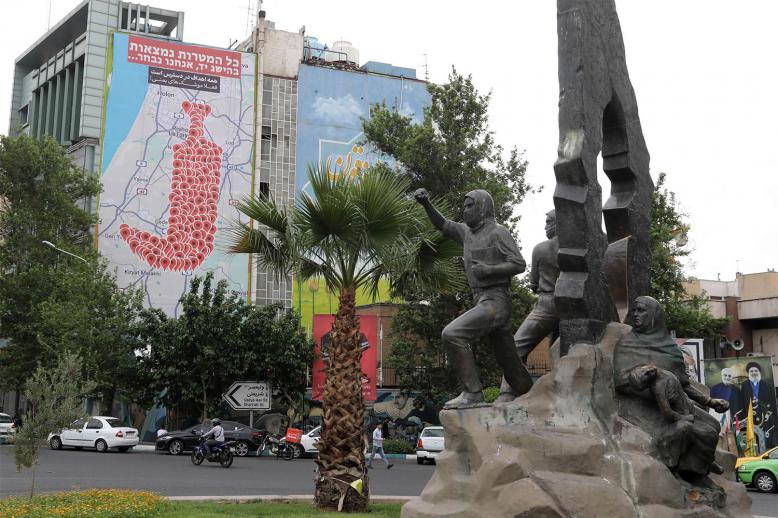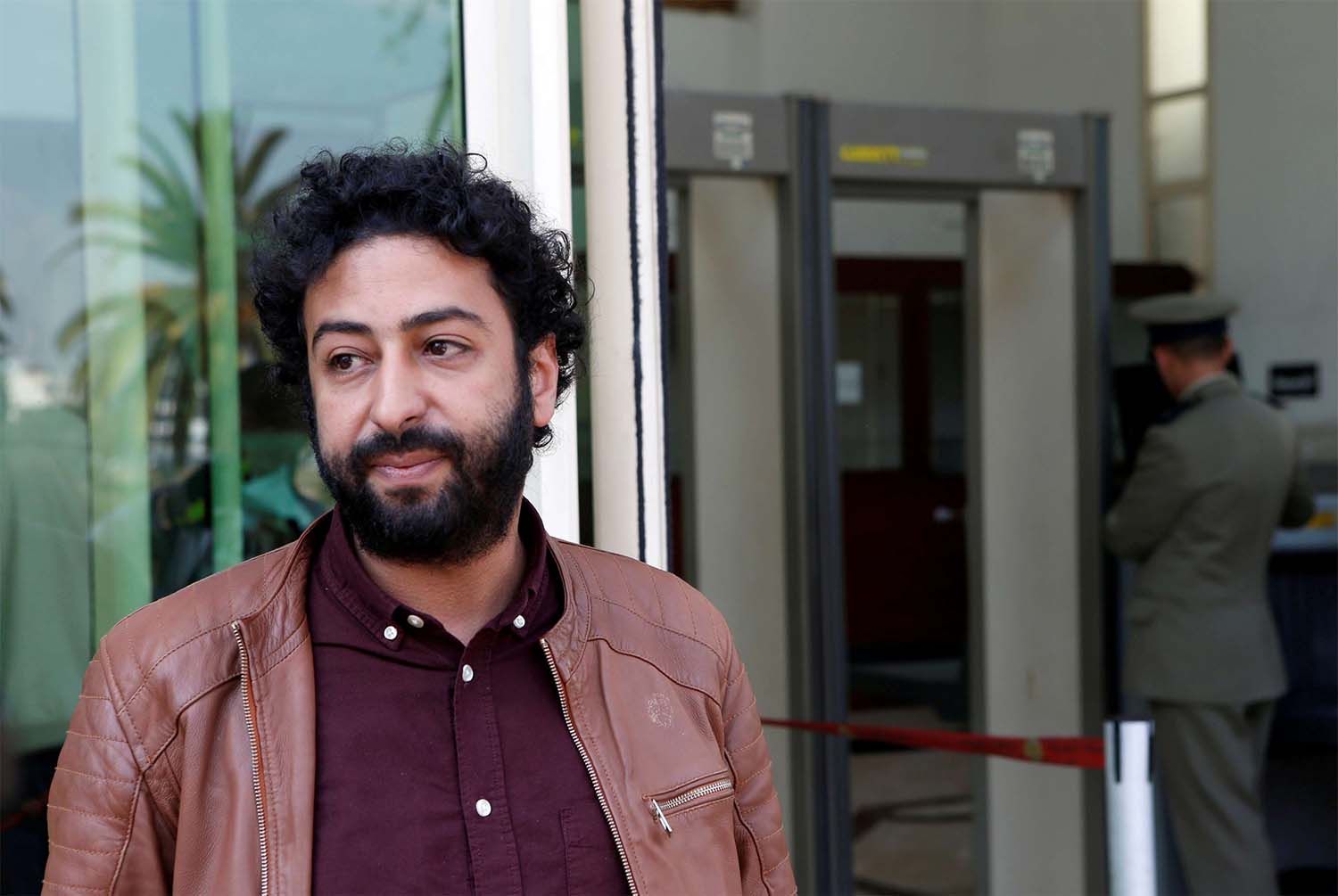Morocco journalist Radi summoned for another inquiry
LONDON - Morocco’s public prosecutor at the Casablanca Appeal Court announced on Wednesday that journalist Omar Radi was summoned as part of an investigation into his alleged involvement in a case of receiving "funds from abroad in connection with intelligence services."
The prosecutor said that the investigation was being carried out following information relayed on social networks about the allegations against Radi.
Radi wrote earlier today on his Twitter account that he had been summoned by the National Brigade of the Judicial Police (BNPJ).
An article published by Morocco’s most popular news website Chouf TV on June 14 unveiled the relationship between Radi and two foreign companies specialising in economic intelligence.
Radi has been collecting information on behalf of two foreign companies "G3 good Governance Group Ltd" and "K2 intelligence Ltd", wrote Chouf TV.
G3 good Governance Group Ltd is a strategic advisory consultancy which specialises in providing advice on risk mitigation, governance, cyber security and regulatory compliance while K2 intelligence Ltd is an industry-leading investigative, compliance, and cyber defence services firm.
Prosecuted since December 2019 at first instance for "contempt of court", Radi was sentenced last March to a four-month suspended prison sentence, together with a fine of 500 dirhams. The journalist's defence then appealed.
Amnesty International said on Monday that the Moroccan government used a technology developed by Israeli cyber company NSO Group to spy on Radi.
Morocco 'vehemently denies' having Pegasus
The London-based human rights group found that Radi's phone was subjected to several attacks using a "sophisticated new technique" that silently installed NSO's Pegasus spyware.
“The attacks occurred over a period when Radi was being repeatedly harassed by the Moroccan authorities, with one attack taking place just days after NSO pledged to stop its products being used in human rights abuses and continued until at least January 2020,” Amnesty said.
A Moroccan intelligence source vehemently denied any relationship between the North African country and the NSO group, reported news website Le360.
“The Moroccan services have no relationship with the Israeli company NSO and Morocco does not have the Pegasus software. Everything that has been put forward in this regard by Amnesty International is false and unfounded,” the source told le360.
Amnesty International said in its report that its Security Lab performed a forensic analysis of Radi’s phone and found traces suggesting he was subjected to the same network injection attacks we first observed against Maati Monjib and described in its earlier report.
“Through our investigation we were able to confirm that his phone was targeted and put under surveillance during the same period he was prosecuted,” said Amnesty without publishing evidence to back its claim.
Le360 said that Monjib, a university professor, was involved in a case related to the embezzlement, on his personal account, as well as that of his wife and sister, of subsidies he received from abroad for an association he chaired.
Monjib owns several real estates and land which cannot in any case be acquired with his income from academia, said the website.
Amnesty said that its previous analysis of Monjib’s phone indicated the execution of malicious software on it from early 2018 until at least June 2019.
“While between 2017 and 2018 he was targeted through SMS messages carrying malicious links tied to NSO Group, in our report from October 2019 we described how Maati Monjib’s phone appeared to have been subjected to malicious redirects while he was navigating the Internet using the Safari browser,” said the rights group.
“We argued that those redirects were symptomatic of network injection attacks which manipulated unencrypted web traffic in order to force Monjib’s browser to visit an exploitation site, located at the domain free247downloads[.]com, without his knowledge,” it added.
Le360 questioned the credibility of Amnesty’s report by referring to an IT expert who said it was possible to have a fingerprint that identifies either the telephone operator used in the case of a hack by SMS, or the geographic location in the case of a redirect to another site.
The Moroccan intelligence source stressed that the North African kingdom gathers its intelligence using human resources in the field which had proved effective in the fight against terrorism and helped European countries avert deadly terrorist attacks on their ground.






